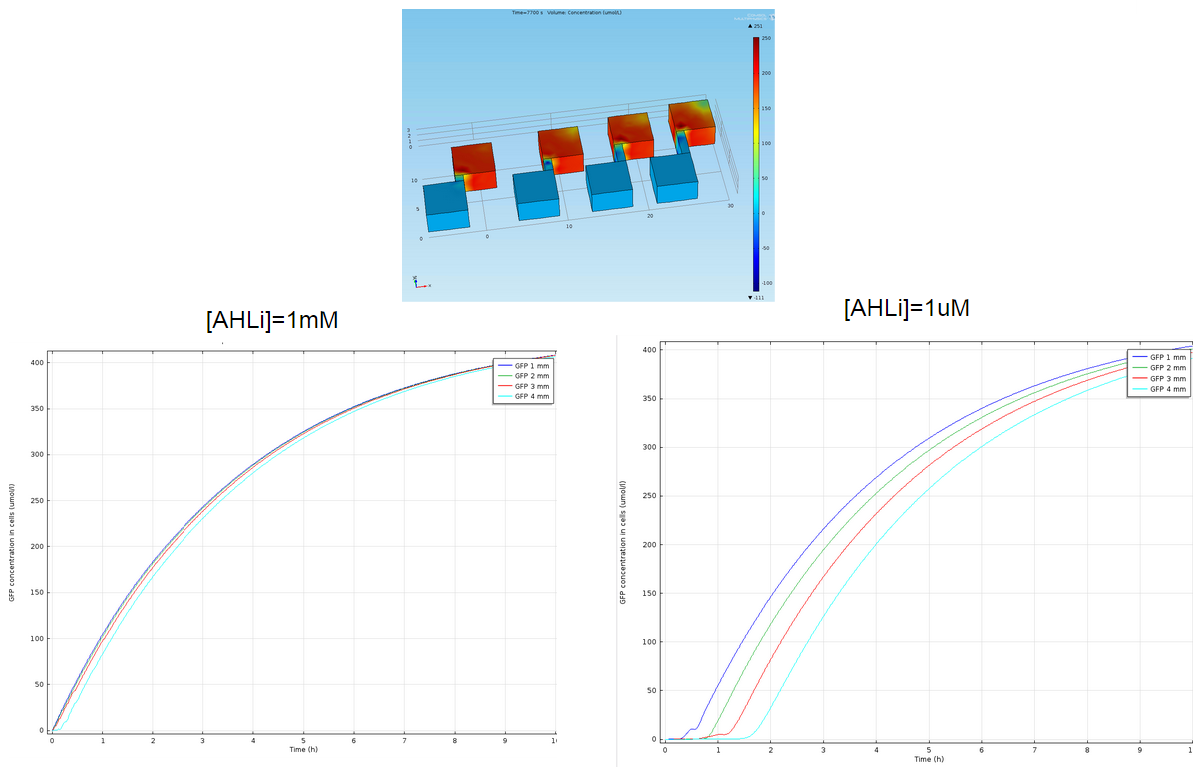Team:ETH Zurich/labblog/20140822mod
From 2014.igem.org
(Difference between revisions)
(→Monday, August 22nd) |
|||
| Line 4: | Line 4: | ||
==== Monday, August 22nd ==== | ==== Monday, August 22nd ==== | ||
| - | + | We have a Comsol simulation for diffusion experiments that explains why at 1mM AHL concentration in sender wells, all 4 wells glow at the same time irrespectively of channel length. On the other hand if we use μ , the wells should start glowing at different times. The channels are 1 to 4mm long. We used a Hill function to model activation of GFP in the receiver wells. | |
[[File:ETH Zurich Comsol3.PNG|center|900px|thumb|Comsol simulation of diffusion experiments for 1mM and for 1 μM AHL initial concentration in sender wells. It explains why with 1mM all wells start glowing at the same time.]] | [[File:ETH Zurich Comsol3.PNG|center|900px|thumb|Comsol simulation of diffusion experiments for 1mM and for 1 μM AHL initial concentration in sender wells. It explains why with 1mM all wells start glowing at the same time.]] | ||
Latest revision as of 19:03, 11 October 2014
Comsol simulation for diffusion experiments
Monday, August 22nd
We have a Comsol simulation for diffusion experiments that explains why at 1mM AHL concentration in sender wells, all 4 wells glow at the same time irrespectively of channel length. On the other hand if we use μ , the wells should start glowing at different times. The channels are 1 to 4mm long. We used a Hill function to model activation of GFP in the receiver wells.
 "
"
